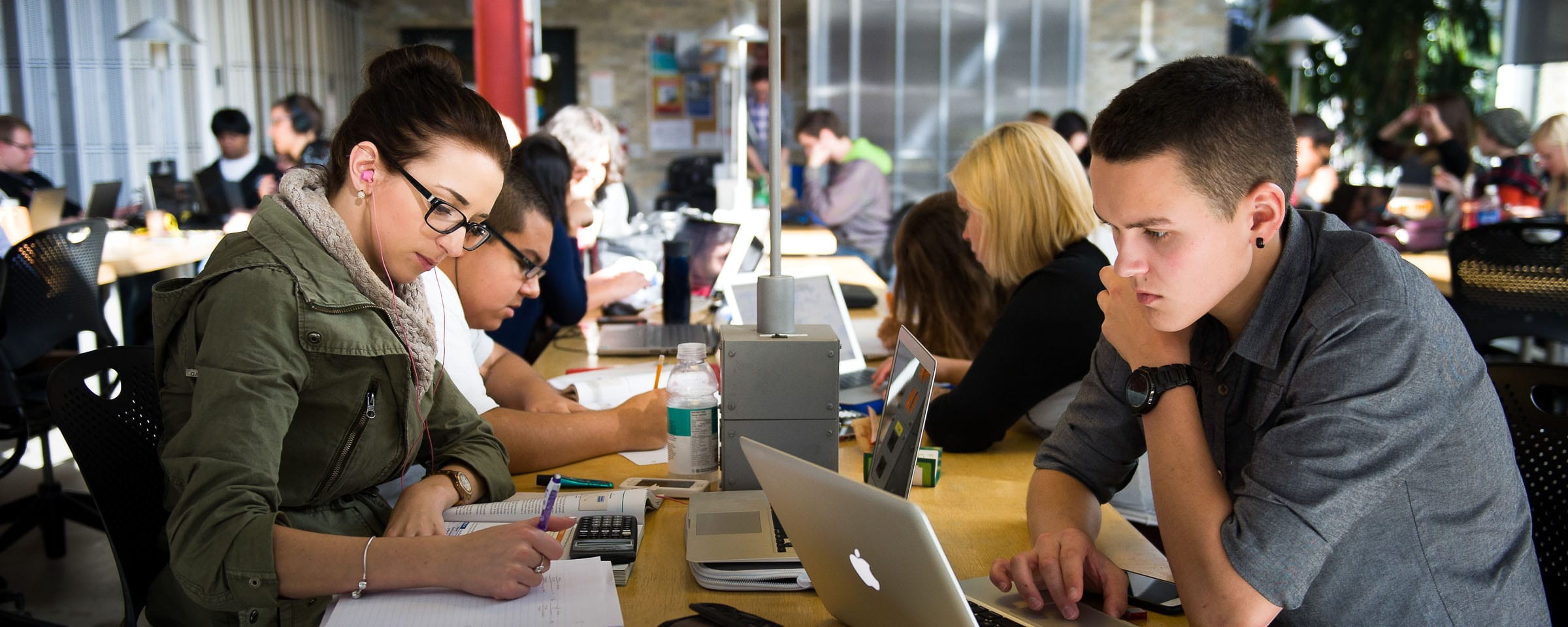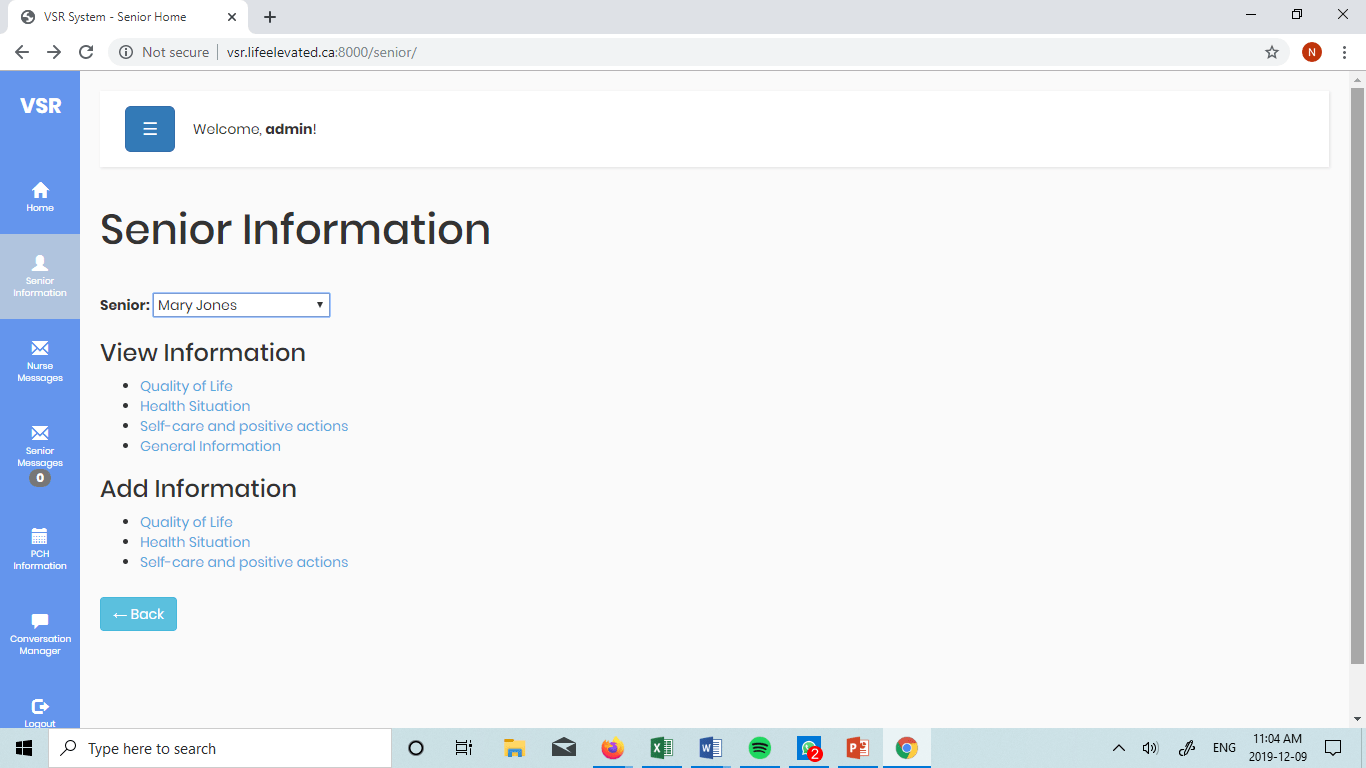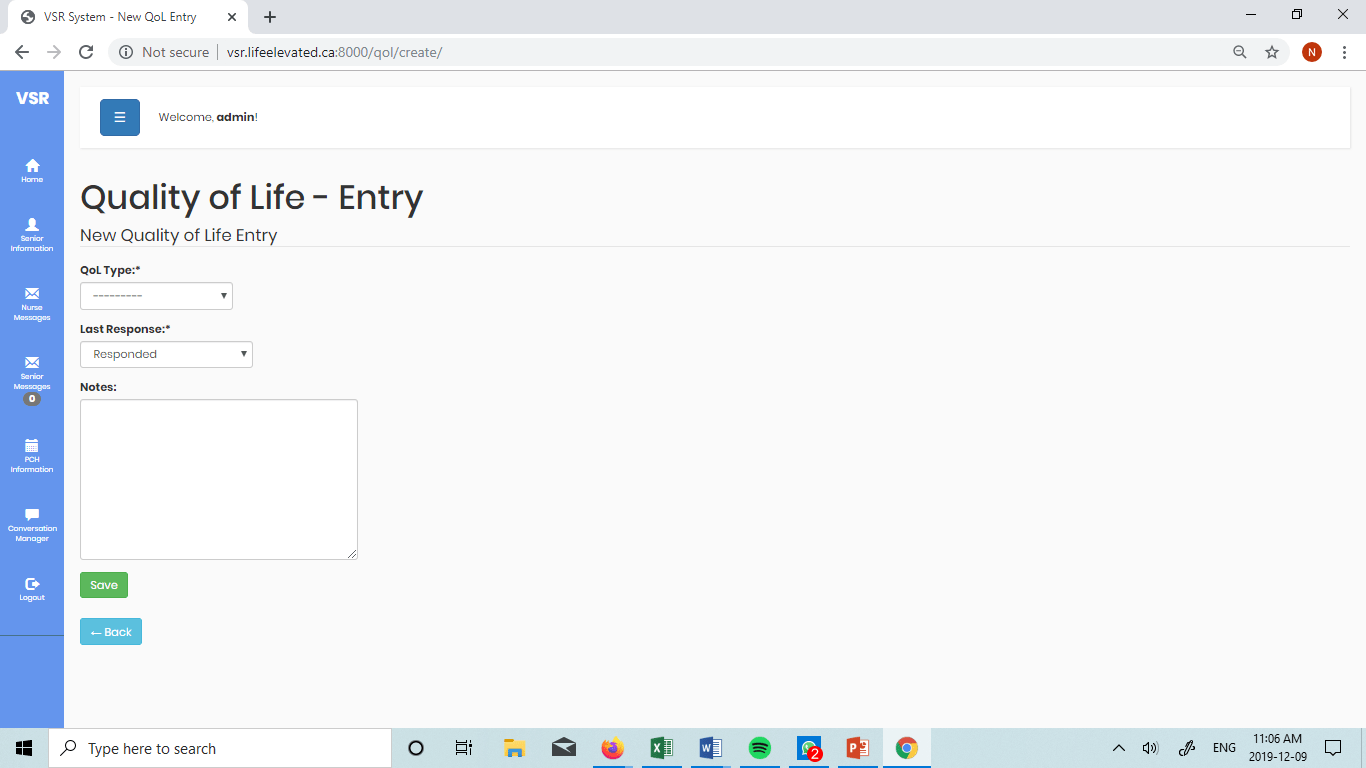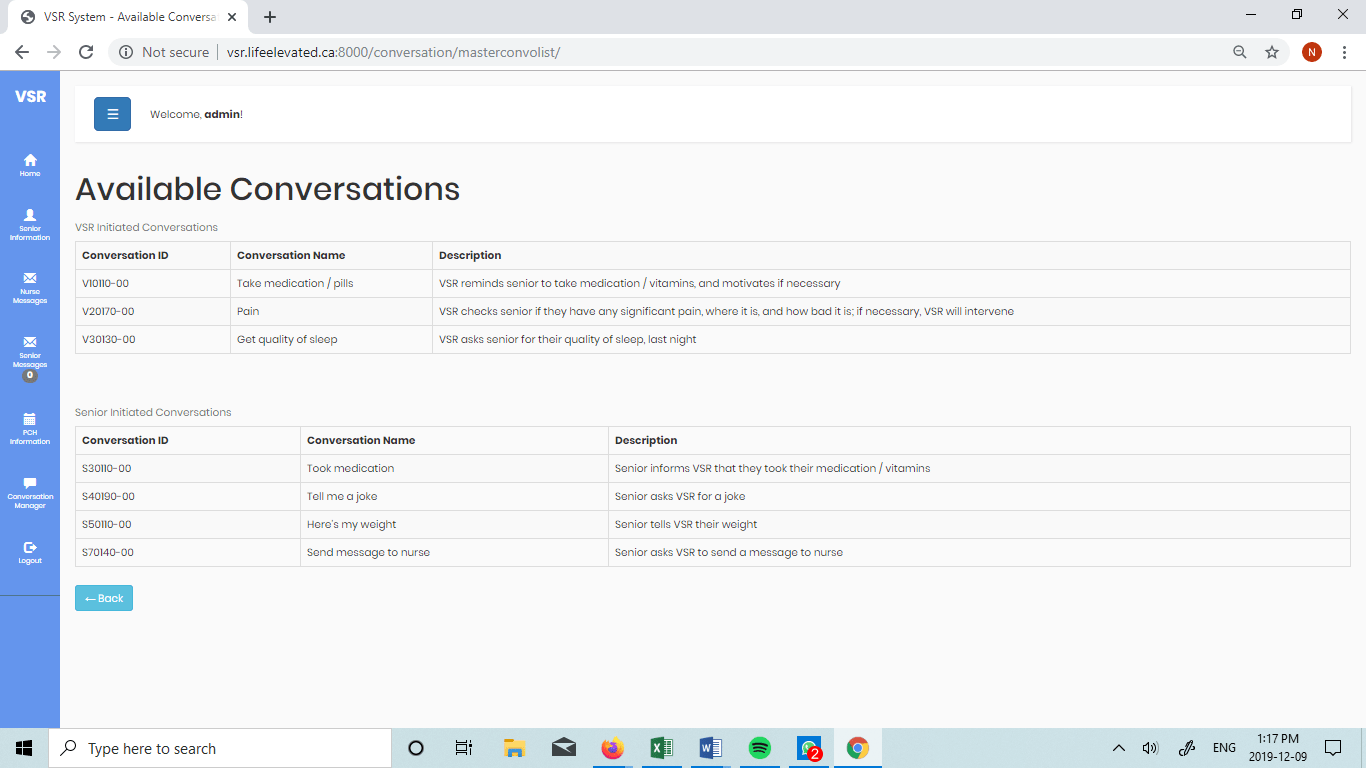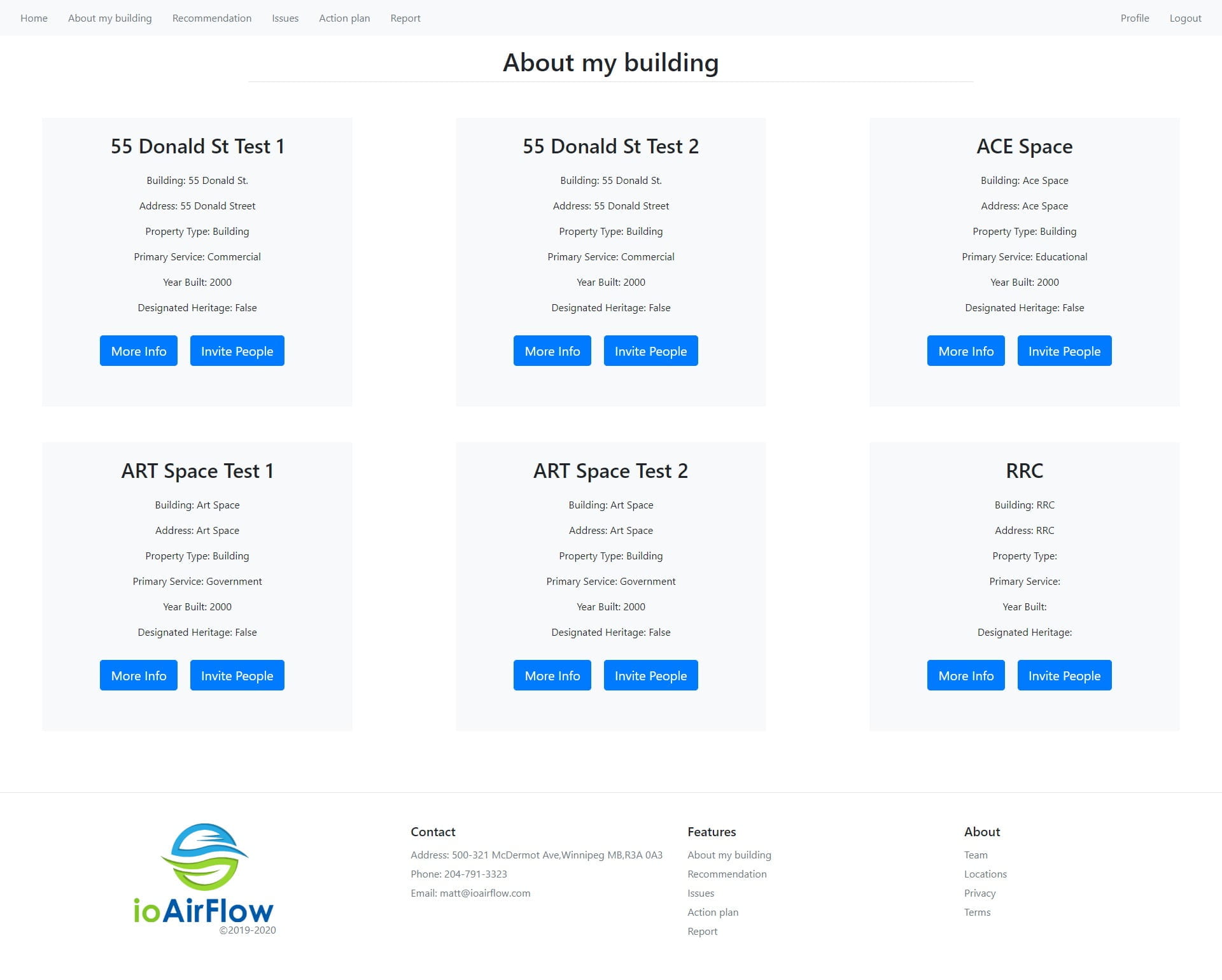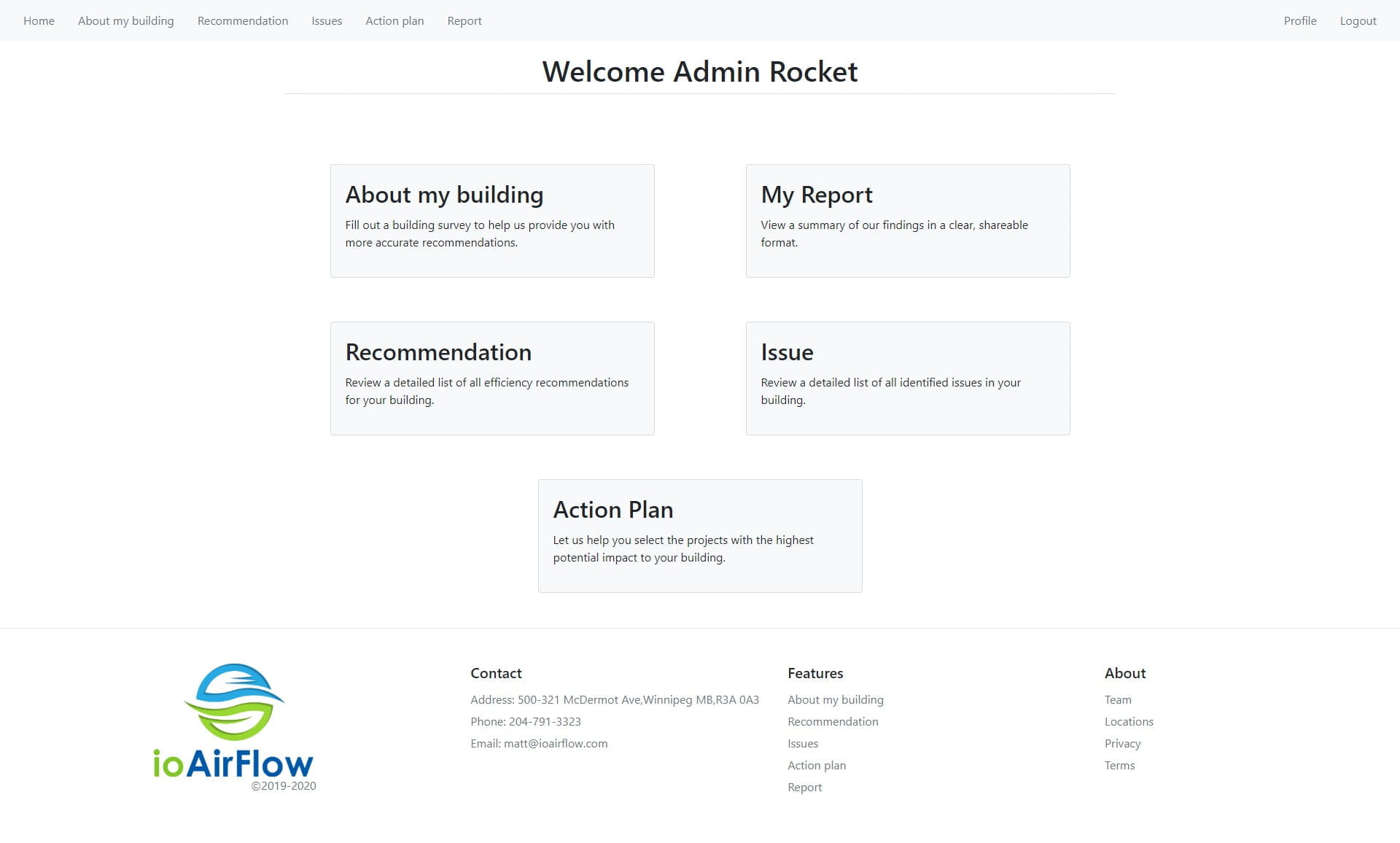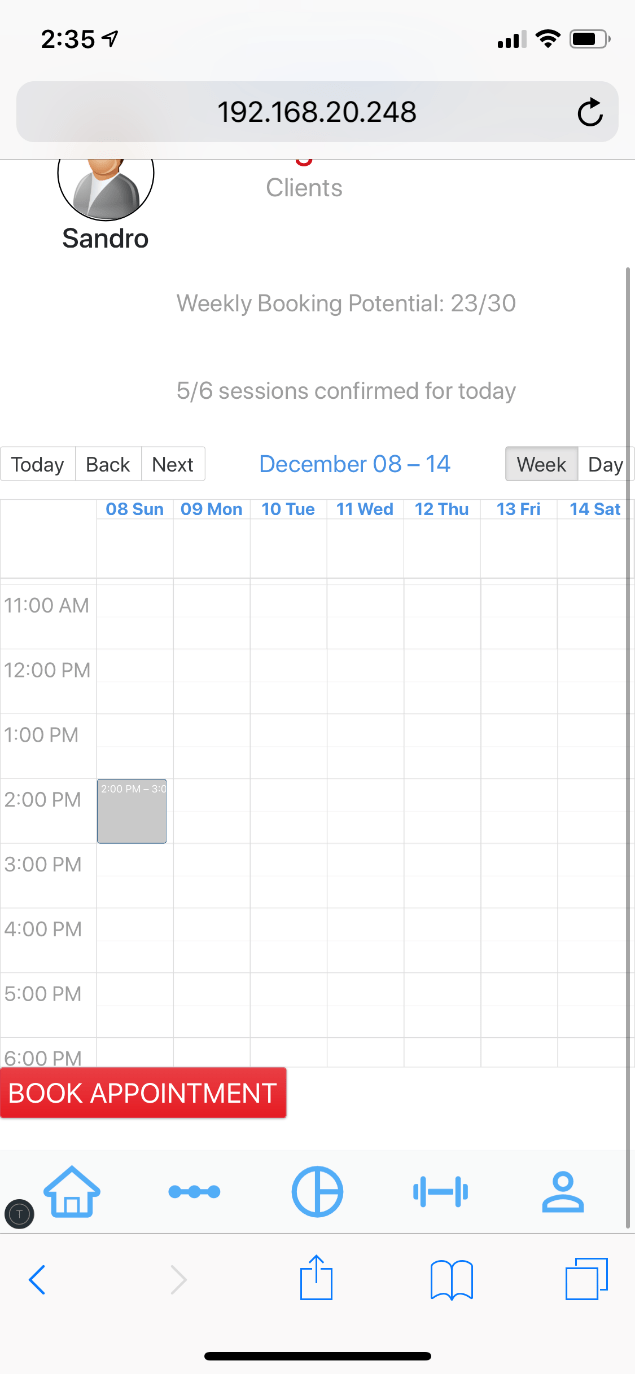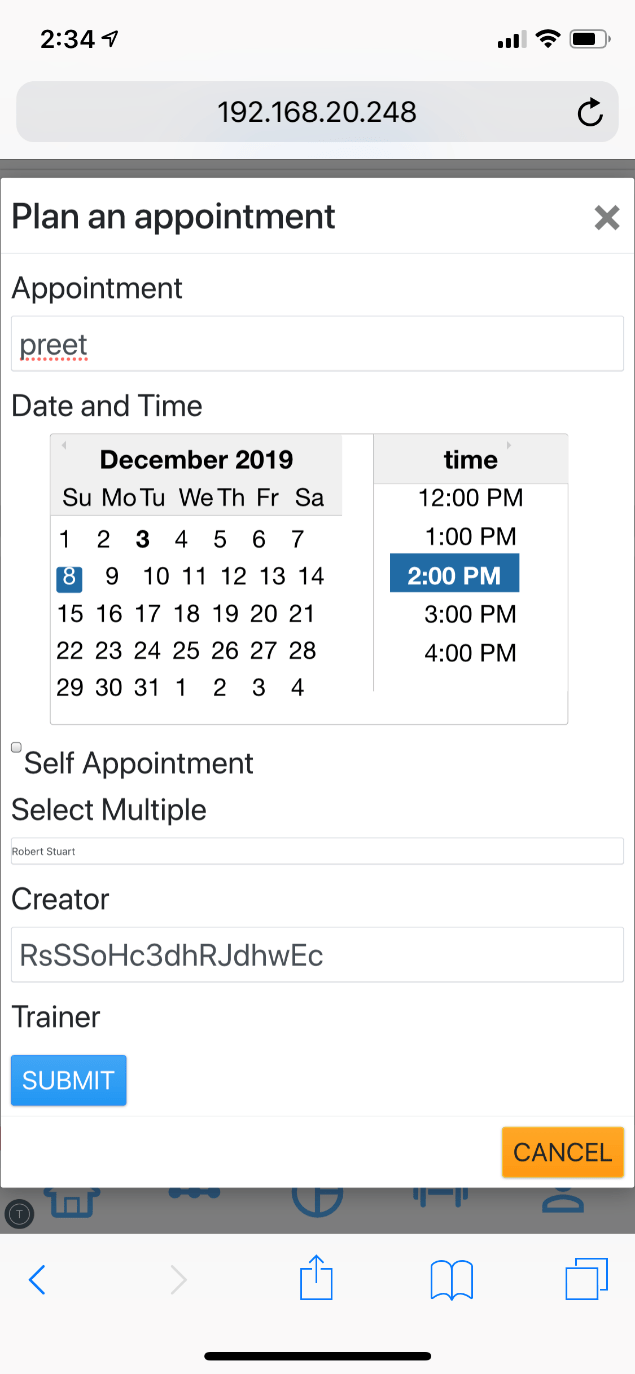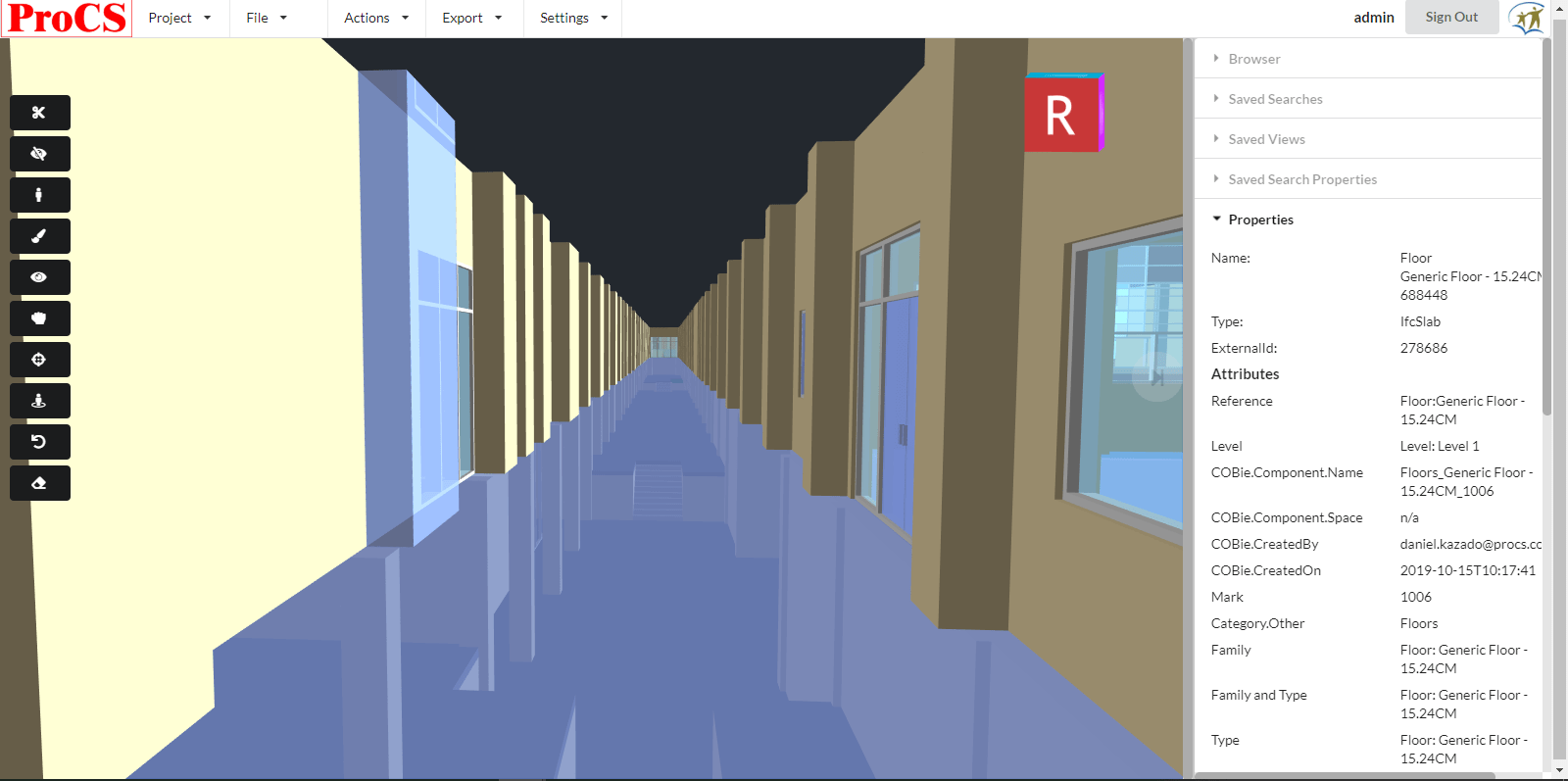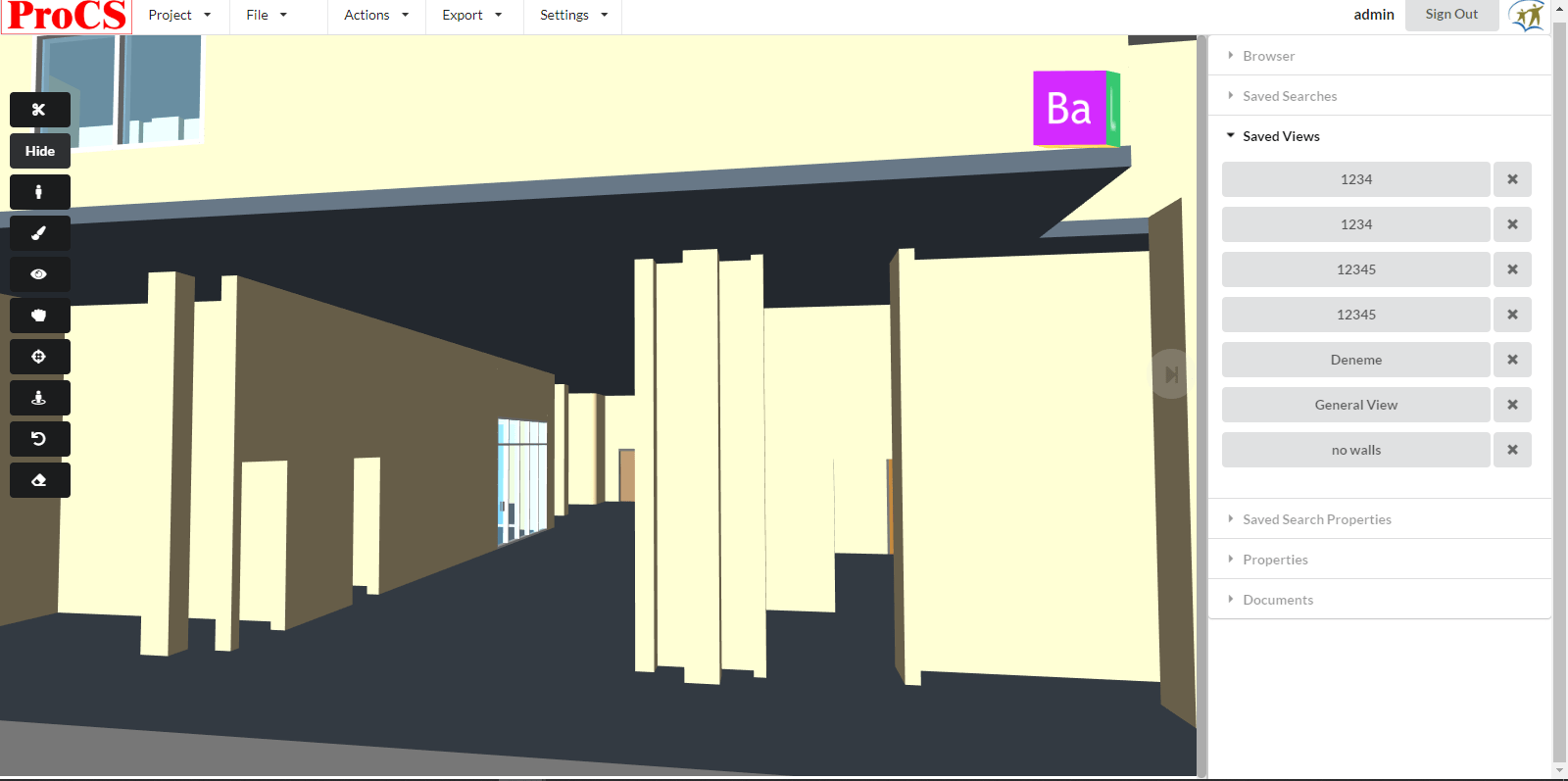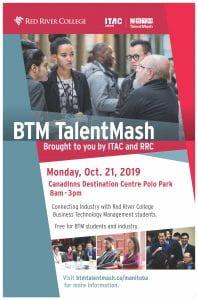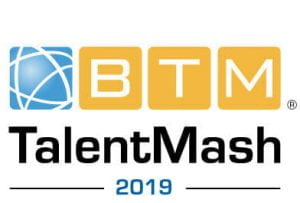Life Elevated – Virtual Senior Roommate
Project Term: Fall 2019
Millions of seniors who require personal care struggle with maintaining their independence, creating strain on themselves, caregivers, and nurses. Life Elevated was created to address the issue. In collaboration with students at the ACE Project Space, the firm is building a practical electronic assistive service to automate tasks that can be performed by a computer.
Building an application for an assistive device
The student team assigned to the Life Elevated project developed a database management system and a website to complement an assistive voice-activated device called a Virtual Senior Roommate or avatar that the firm had developed. The students extracted health, quality of life, and general activity information from the avatar and were able to present the data in a manner that nurses could analyze. In addition, the students learned how to a Cura Lulzbot to design and print a 3D case for the avatar to allow for easier transport.
Deliverables
The Life Elevated team completed the following deliverables for the project during the fall term at the ACE Project Space:
- Database system to support the solution
- Website with information collected from the avatar, seniors, and nurses
- 3D designed and printed cases for the avatar.
What our students are saying
“I learned how to work effectively in a team, how to use Python/Django and git, and how to prioritize tasks. I learned team building by actively participating in group discussions and voicing my own opinions on matters at hand.” – Simon Tran
“Having this 4-month experience, it was an opportunity for me to enhance my soft skills, such as organizational, leadership, communication, and some technical skills as well.” – Nelson Munoz
“In my experience in the ACE Project Space, I’ve learned to work in a team, and by that, I mean I learned to accept other people’s opinions. There are a lot of differences in the way people do things. I self-learned new technologies and applied what I already knew to these technologies to further enhance my skills in development.” – Jose Jacap
Technologies used
- Python
- PyCharm
- Django
- PostgreSQL
- Balsamiq Mockups 3
- Drawio
- Cura-lulzbot Software
